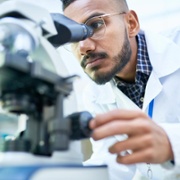Open 2/24/2026 through 3/24/2026
Full-Time

Job Summary
The Medical Technologist assumes responsibilities in the areas of specimen analysis, quality control of tests, equipment maintenance, handling of specimens, monitoring supplies, knowledge of lab procedures, and lab record keeping. The Medical Technologist also applies technical expertise/techniques in all areas of the lab, including but not limited to, performing phlebotomy, arterial venipuncture for blood gases, and blood banking. Performs all routine laboratory procedures. Must cover on-call hours and be comfortable working alone.
Duties of a Medical Technologist shall be performed in a manner consistent with KCH philosophy. Performance of duties must sincerely and positively reflect consideration, concern, and inspire confidence whenever interacting with staff, medical staff, patients, and management.
Performance Responsibilities
- Provides timely and accurate lab reports.
- Communicates with ancillary personnel, physicians, lab staff, and administration concerning department issues.
- Provides data and related materials for test and equipment QC.
- Provides accurate records of analysis done and QC of those analyses.
- Monitors records of equipment maintenance and service.
- The Medical Technologist reports to the Lab Manager.
- Follows lab safety procedures.
- Follows Lab Quality Improvement Plan.
- Performs all routine lab procedures
- Phlebotomy is a required task.
- Performs other duties as requested by the Lab Manager.
Specifications and Requirements
- Education – Bachelor of Science in Medical Technology or Medical Laboratory Science.
- Certifications – Must have ASCP or AMT certification.
- Training – Education and internship as required by registering board.
- Experience – Must have five (5) years of experience as a generalist. Must have prior experience in Blood Banking and arterial puncture.
- Must be comfortable working independently.
- Interrelationships – Ability to work under conditions of frequent interruptions, noise, and pressure. Good mental health to be able to perform under extreme conditions of pressure and stress. Willingness to work with the knowledge that errors may have serious consequences for patients, the lab, and the hospital. Good human relations and communications are essential in order to effectively relate to peers, physicians, patients, and Administration.
- Working Conditions – Works in the laboratory with potentially dangerous chemicals and biohazard materials. Works with explosive and flammable materials. Works in a high-risk area. Must be able to work alone with no supervision. Often works 10-hour or longer days. Must be able to take on-call shifts in addition to regular schedule.
- Physical Demands – Stands and walks constantly each day. Stoops, reaches, lifts, and carries heavy objects. Hand dexterity is essential in work. Visual acuity and color discrimination is necessary in analytical determinations. Aural acuity is needed to operate laboratory instruments.
Work Schedule
- 40 hours per week, working four–10-hour shifts
- Required to be on-call two to three times per week on weekdays, and a minimum of one weekend and maximum of two weekends per month
To apply click here.

